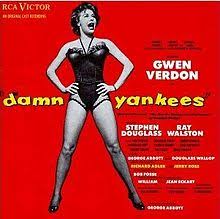
The Broadway Musical lost one of its greatest and most significant creators today. Harold Prince is absolutely one of the two or three most significant individuals in the history of the Broadway musical. More personally, his work and vision had a tremendous impact on my aesthetic and artistic sensibilities. On my first trip to NYC, when I was 15, I saw his groundbreaking, immersive revisal of CANDIDE. Everything that Rachel Chavkin got so much acclaim for doing with The Great Comet, Prince did in 1973, and much more effectively.

You can read his full bio in the attached obituary https://www.nytimes.com/2019/07/31/theater/hal-prince-dead.html but here are just a few key points that stand out to me:
Harold Prince was born in 1928 in New York City and like so many inventors of the Broadway Musical he came from an immigrant family. His adopted father was the child of Polish-Jewish immigrants, his mother was from a Jewish-Canadian family. At an early age, he was taken to Broadway shows by his theater-loving parents, and there he discovered a lifelong calling. Graduating from the University of Pennsylvania at age 19, Prince returned to New York determined to find a way to break into the theater.
As a perfect example of our handed-down, one-artist-to-the-next craft and art-form, Prince soon started working for the great director/producer George Abbott first as an Assistant Stage Manager and quickly working his way up to being the Stage Manager of several hit musicals such as Wonderful Town.

Just think of the impact on this smart, ambitious, talented young man of having the opportunity to work closely with vibrant, brilliant, significant theater artists like songwriters Betty Comden, Adolph Green and Leonard Bernstein, choreographer Donald Sadler, music director Lehman Engle, designer Raoul Pen Dubois, and with Mr. Abbott overseeing them all!
Note: Even this one group of collaborators on this one musical clearly demonstrates the thesis of my UW course and upcoming podcast. Every one of these artists (except Abbott) was either Jewish or Queer -- and many were both. You can read about my course "The Broadway Musical: How Immigrants, Jews, Queers and African-Americans Invented America's Signature Art Form" here: https://artsci.washington.edu/news/2019-05/surprising-history-musical-theater
Soon Prince convinced Abbott and his partners to let him join them as a co-producer on a few shows before going off on his own. He quickly became the “boy wonder” of Broadway producing a string of hit Golden Age shows including The Pajama Game, Damn Yankees, Fiddler On The Roof, and West Side Story.
But, of course, what he really wanted to do was direct.
Although the idea of the “Concept Musical” was initiated by Jerome Robbins though his work on Fiddler On The Roof, GYPSY, and West Side Story -- none of which can be called a concept musical. Prince was there, paying attention and he picked up the idea and ran with it -- in collaboration with the ideal, bold, queer creative partners: Kander & Ebb, Ron Field, Michael Bennett, and Stephen Sondheim. Prince lead them to create an extraordinary string of game changing musicals: Cabaret, Company, Follies, A Little Night Music, Pacific Overtures, Sweeney Todd, Evita, Show Boat, Phantom Of The Opera.
In collaboration with Russian-Jewish immigrant designer Boris Aronson Prince pioneered the use of epic, conceptual, non-naturalistic staging and design that totally transformed the way Broadway musicals looked and moved.
In a career that spanned more than 60 years Harold (Hal) Prince produced and/or directed more than 40 Broadway shows, and received 21 Tony Awards, more than any other single individual. Every current director of musicals, including myself, had been profoundly influenced and inspired by Hal Prince.






















